In the world of post-secondary education, there really isn’t any as exciting as orientation week. Each fall, the start of the school year brings together a new group of students who are full of energy and enthusiasm, and eager to meet new people as they start their college journey.
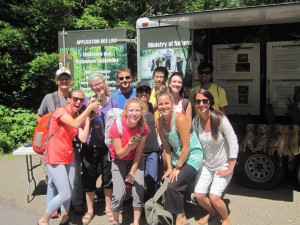 At many colleges, orientation is the first time that students are meeting their new classmates, but at Algonquin College’s Waterfront Campus, in many cases, it’s an opportunity to connect with familiar faces. The reason is the campus has increasingly created more opportunities for students to get to know each other through pre-orientation activities such as Program Awareness Camps held each spring and Jump Start pre-academic preparation programs offered in August.
At many colleges, orientation is the first time that students are meeting their new classmates, but at Algonquin College’s Waterfront Campus, in many cases, it’s an opportunity to connect with familiar faces. The reason is the campus has increasingly created more opportunities for students to get to know each other through pre-orientation activities such as Program Awareness Camps held each spring and Jump Start pre-academic preparation programs offered in August.
With about 50 percent of the campus student population having to re-locate to Pembroke, these early interventions have become critically important in helping students succeed. It’s the first step to ensure they are comfortable in their new surroundings.
In fact, many students and families have connected with the campus on several occasions before orientation week arrives. They have attended an Open House, taken a campus tour, or participated in a program awareness camp where students experience what their program is going to be like through interactive learning exercises led by their faculty.
 Through these early connections, students have been able to stay in contact with other incoming students throughout the summer months via social media, phone calls, texting or even face-to-face meetings. When they arrive for orientation, the nervousness has subsided because they are greeted by another student who they have already gotten to know quite well.
Through these early connections, students have been able to stay in contact with other incoming students throughout the summer months via social media, phone calls, texting or even face-to-face meetings. When they arrive for orientation, the nervousness has subsided because they are greeted by another student who they have already gotten to know quite well.
Orientation week is packed with activities. There are free lunches, whitewater rafting trips, a pub, movie nights, yoga sessions, bubble soccer in the gymnasium, board games and a move in day BBQ for students living in residence. The social activities will continue over the next few weeks as the school year starts, and students gradually settle into their academic programs.
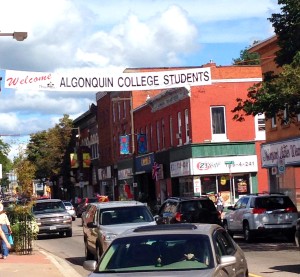
The value of a robust orientation program can never be questioned, but for many of our students it’s just an extension of the relationships they started building with other students several months ago. For younger students, in particular, this approach goes a long way in helping them get off to a good start at college.
Posted by Jamie Bramburger, Manager of Community and Student Affairs

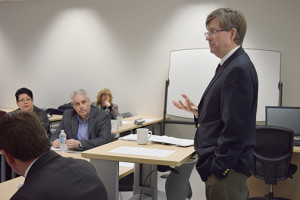
 It’s true that most college bound students have their plans in place for this fall, but that doesn’t mean it’s too late to
It’s true that most college bound students have their plans in place for this fall, but that doesn’t mean it’s too late to 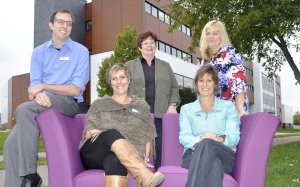
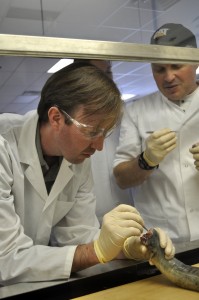

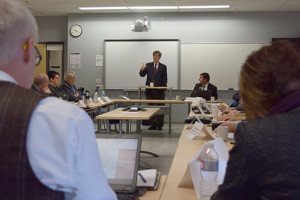 Conway held a three hour discussion at Algonquin College’s Waterfront Campus with about 25 people from Renfrew County. The audience included business owners, human resources professionals, economic development officers, labour market analysts, high school guidance counsellors, and senior administrators from Renfrew County’s District School Boards and Algonquin College.
Conway held a three hour discussion at Algonquin College’s Waterfront Campus with about 25 people from Renfrew County. The audience included business owners, human resources professionals, economic development officers, labour market analysts, high school guidance counsellors, and senior administrators from Renfrew County’s District School Boards and Algonquin College. “I’m approaching graduation and I’m conflicted about what my next step should be. Should I travel while I still can? Should I pursue more education? Do I try to find a career job right away, even though I don’t have much experience? Help!”
“I’m approaching graduation and I’m conflicted about what my next step should be. Should I travel while I still can? Should I pursue more education? Do I try to find a career job right away, even though I don’t have much experience? Help!”